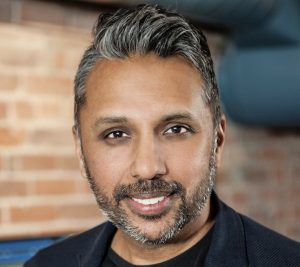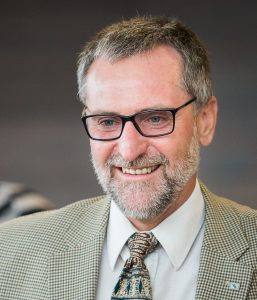Joint AE-CAI | CARE | OR 2.0 Workshop @ MICCAI 2023: Sunday, Oct. 8th, 2023
8:00 AM Opening Remarks — Cristian Linte
8:10 AM Endoscopy Session (Chaired by Yiv Zaniv & Jonathan McLeod)
# 4 Generalisable Stereo Depth Estimation with Masked Image Modelling, Samyakh Tukra (Imperial College London) [REMOTE]
# 6 Proof-of-concept of a robotic-driven photogrammetric scanner for intra-operative knee cartilage repair, Álvaro Bertelsen (Vicomtech)
# 9 Calibration-free structured-light-based 3D scanning system in laparoscope for robotic surgery, Ryo Furukawa (Kindai University) [REMOTE]
# 14 YOLOv7-RepFPN: Improving Real-Time Performance of Laparoscopic Tool Detection on Embedded Systems, Yuzhang Liu (Nagoya University) [REMOTE]
# 19 Towards Better Laparoscopic Video Segmentation: A Class-Wise Contrastive Learning Approach with Multi-Scale Feature Extraction, LUYANG ZHANG (Graduate School of In formatics, Nagoya University) [REMOTE]
# 21 Real-time surgical tool detection with multi-scale positional encoding and contrastive learning, Gerardo Loza Galindo (University of Leeds) (***Best paper***)
# 31 Towards Navigation in Endoscopic Kidney Surgery based on Preoperative Imaging, Ayberk Acar (Vanderbilt University)
9:00 AM Keynote # 1: Dr. Danny Goel, Founder & CEO, PrecisioOS, Orthopedic Surgery, Univ. of British Columbia
 Transforming Global Medical Education with Spatial Computing: A New Era of Technology in Healthcare
Transforming Global Medical Education with Spatial Computing: A New Era of Technology in Healthcare
Abstract: Medical education is limited around the world where current models of simulation are either inaccessible or require significant expense to utilize. This presentation will highlight the current challenges healthcare providers face and the care they can provide for their patients. Through accessible models of simulation, the implications for patients and the economic implications of standardized care through on demand education and mentorship will be highlighted.
10:00 AM Coffee Break
10:30 AM Poster Session
11:30 AM AR/VR/MR Session (chaired by Marta Kersten-Oertel & Jonathan McLeod)
# 5 First-in-human Realtime AI-assisted Augmented Reality for Renal Surgery, Jasper Hofman (Orsi Academy) (***Best paper***)
# 13 Intraoperative Gaze Guidance with Mixed Reality, Ayberk Acar (Vanderbilt University)
# 15 Development of an Augmented Reality Guidance System for Head and Neck Cancer Resection, Guansen Tong & Jiayi Li (Vanderbilt University) [REMOTE]
# 17 Mixed Reality Guided Root Canal Therapy, Ehsan Azimi (Johns Hopkins University)
# 23 Visualization Modality for Augmented Reality Guidance of in-depth Tumour Enucleation Procedures, Nadia Cattari (University of Pisa)
# 26 Breamy: An augmented reality mHealth prototype for surgical decision-making in breast cancer, Niki Najafi (Concordia University)
# 27 Mixed Reality Based Teleoperation and Visualization of Surgical Robotics, Ehsan Azimi (Johns Hopkins University)
# 24 Optical rules to mitigate the parallax-related registration error in see-through head-mounted displays for the guidance of manual surgical procedures, Vincenzo Ferrari (University of Pisa)
12:30 PM Lunch
1:40 PM Surgical Data Science Session (Chaired by Jonathan McLeod& Marta Kersten-Oertel)
# 11 Performance Evaluation in Cataract Surgery With An Ensemble of 2D-3D Convolutional Neural Networks, Ummey Tanin (Carleton University, School of Computer Science)
# 20 Revisiting instrument segmentation: learning from decentralized surgical sequences with various imperfect annotations, Zhou Zheng (Nagoya University) [PRE-RECORDED VIDEO ]
# 25 Scale-Preserving Shape Reconstruction from Monocular Endoscope Image Sequences by Supervised Depth Learning, Takeshi Masuda (National Institute of Advanced Industrial Science and Technology)
# 28 Autonomous Soft Tissue Retraction Using Demonstration-Guided Reinforcement Learning, Amritpal Singh (Georgia Institute of Technology ) [REMOTE]
# 33 ASSIST-U: A System for Segmentation and Image Style Transfer for Ureteroscopy, Daiwei Lu (Vanderbilt University) (***Best paper***)
2:15 PM Poster Session
3:30 PM Coffee Break
4:00 PM Keynote # 2: Dr. Gabor Fichtinger, Queen’s University, Canada
 Point-of-care-ultrasound guided therapies and interventions in the global health context
Point-of-care-ultrasound guided therapies and interventions in the global health context
Abstract: Point-of-care-ultrasound guided therapies and interventions, shortly POCUS-IGT, enables treatment at the bedside, whether in an urban hospital, rural clinic, or mobile care unit. The potential use of POCUS-IGT in interventions like injections, biopsies, drainages, ablations and surgeries is virtually unlimited. As such, POCUS-IGT can transcend geographic and socio-economic boundaries and thus bring closer the ideal of democratization of access to healthcare. In the global context, sustainable development of POCUS-IGT programs is dependent on the availability of free open-source software platforms, as the mean of rapid knowledge and technology translation. This talk will discuss the role of the 3D Slicer (www.slicer.org) and SlicerIGT (www.SlicerIGT.org) free open-source software ecosystems in the development of POCUS-IGT solutions and their global deployment though the Train the Trainer Program, an alliance between the University of Las Palmas de Gran Canaria, Harvard Medical School and Queen’s University, working with clinical leaders, governments, and international organization toward establishing national POCUS-IGT programs in West Africa, particularly in Mauritania and Senegal.
5:00 PM Closing Remarks
*Note: All papers will be featured as both short orals (5-6 mins per paper) and posters.
